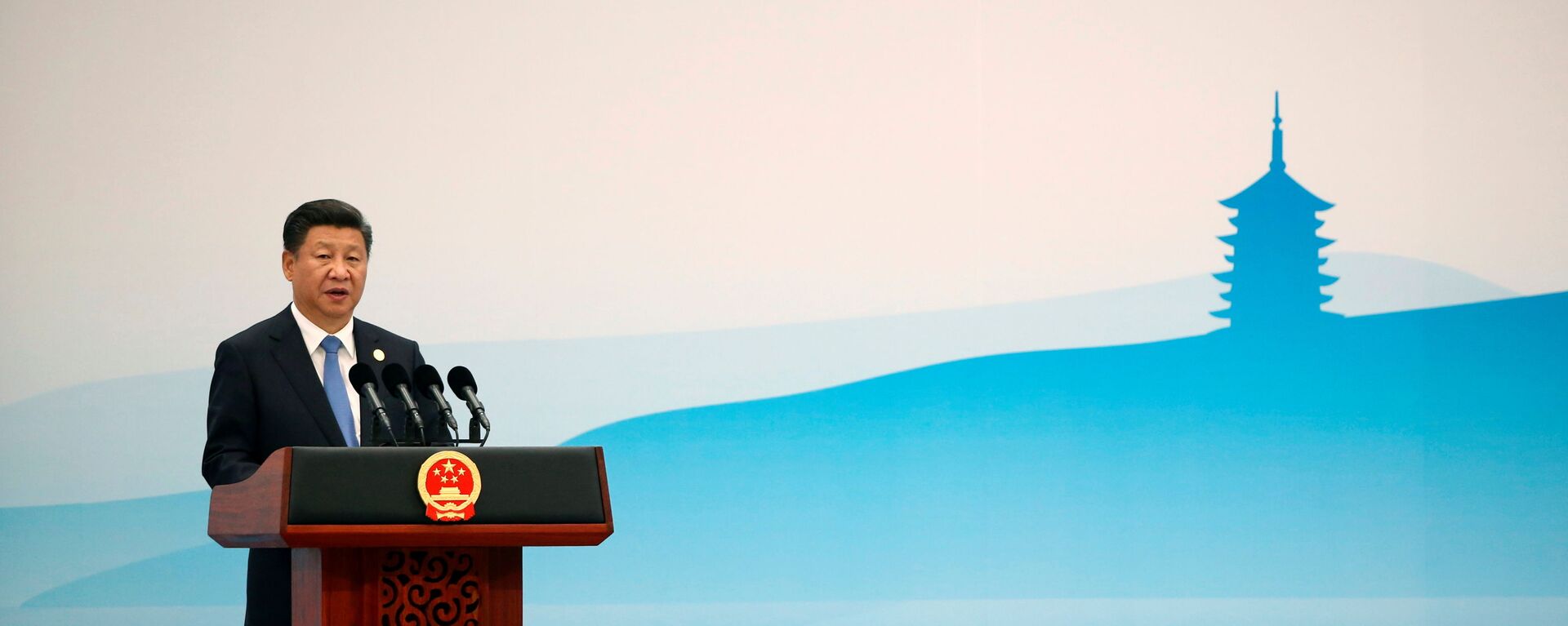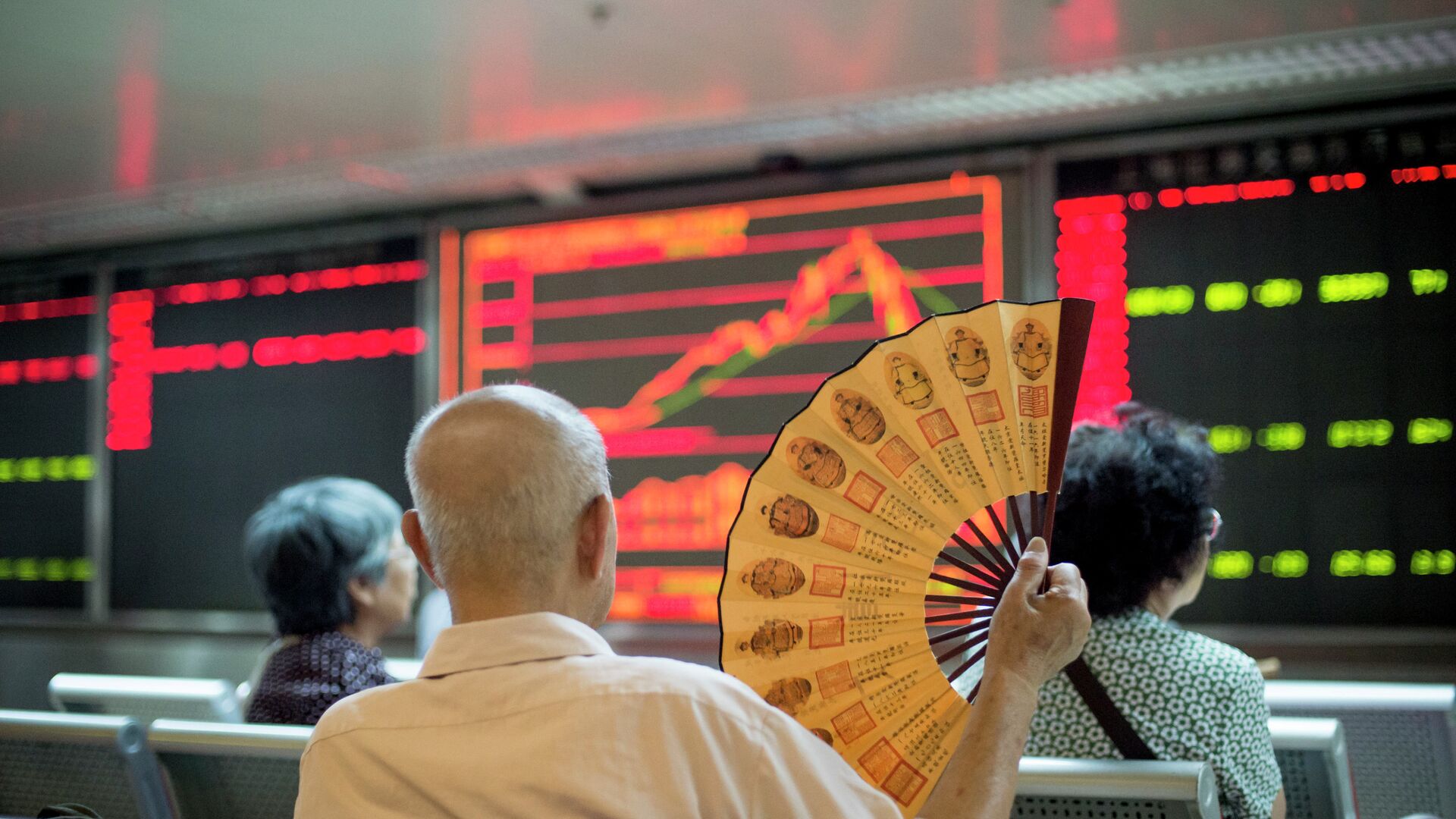https://sputnikglobe.com/20210920/global-stock-markets-plunge-as-chinese-giant-evergrande-faces-mountain-of-debt-1089250911.html
Global Stock Markets Plunge as Chinese Giant Evergrande Faces Mountain of Debt
Global Stock Markets Plunge as Chinese Giant Evergrande Faces Mountain of Debt
Sputnik International
There is, however, a key difference in China’s real estate market that makes it unlikely that it will plunge the global economy into a recession. 20.09.2021, Sputnik International
2021-09-20T19:39+0000
2021-09-20T19:39+0000
2022-12-19T13:55+0000
china
dow jones index
hang seng index
s&p
stock market
https://cdn1.img.sputnikglobe.com/img/106517/24/1065172458_0:254:4928:3026_1920x0_80_0_0_72796ae323664193204a54b956ee4285.jpg
On Monday, the Dow Jones Industrial Average dropped 701 points, 2.04%, as concerns over Chinese property giant Evergrande Properties’ ability to make debt payments. The S&P 500 and the NASDAQ also saw larger than 2% drops.The plunging stock market wasn’t just contained to the United States. Hong Kong’s Hang Seng index plummeted 3.3%, Germany’s DAX 30 dropped 2.31%, France’s CAC 40 slumped 1.74% and Britain’s FTSE 100 leaked 0.86%. 2021 has seen the stock market post steady growth, but a collapse from Evergrande and the ensuing ramifications could see some of those gains undone.Evergrande Properties stock sank by as much as 19% on Monday, and it brought other Chinese companies along for the ride, with some comparing the ripple effect to the 2009 financial crisis. However, there is a significant cultural difference between American and Chinese homebuyers. In China, it is far more common for homebuyers to purchase their homes outright. While a collapse from Evergrande could leave these homebuyers shouldering a major loss, it prevents their collapse from dragging banks and the entire economy down with them. The question still remains, how did a company that as recently as 2018 was deemed the world’s most valuable real estate company come to the precipice of financial ruin?Evergrande Properties is ranked 122 on Fortune’s top 500 companies list. As one of China’s largest developers, it has experienced explosive growth since its founding in 1996. Starting in 2010, the company blossomed into one of China’s most dynamic real estate developers. To do so, the company borrowed heavily to fund its projects and consistently faced a mountain of debt.With China’s economy continuing to grow at a rapid pace, they were always able to stay one step ahead of their creditors until two things happened as the 2010s gave way to the 2020s. The first was the coronavirus pandemic hurting the global economy and the second was Beijing’s desire to reign in lending for development. The downtick in demand punctuated by a loss to easy credit meant that the company was facing the reality of needing to raise more funds just as consumer demand abated.Evergrande’s near-collapse has been a long time coming. The company’s stock has fallen 81% since the beginning of 2021. However, Evergrande isn’t the only company in China’s property sector that has been hurting. In the first half of 2020, 228 real estate companies went bust in China. While these were primarily in smaller Chinese cities, the fact that a real estate giant like Evergrande is buckling could spell doom for the sector as 2022 approaches.If Evergrande isn’t able to repay its creditors and goes bust, how the Chinese government handles the situation could become paramount. It is estimated that 78% of urban Chinese wealth is tied up in residential property. If Beijing rescues the firm, it could ease the fears of a Chinese economic downturn hurting the global market. However, if Evergrande is left to flounder, it could leave 1.5 million people who have already purchased properties currently under development out in the cold, as well as send China’s real estate market and its economy in a downward spiral.
https://sputnikglobe.com/20210902/chinese-president-xi-jinping-announces-plans-to-establish-stock-exchange-in-beijing-1083779676.html
china
Sputnik International
feedback@sputniknews.com
+74956456601
MIA „Rosiya Segodnya“
2021
News
en_EN
Sputnik International
feedback@sputniknews.com
+74956456601
MIA „Rosiya Segodnya“
Sputnik International
feedback@sputniknews.com
+74956456601
MIA „Rosiya Segodnya“
china, dow jones index, hang seng index, s&p, stock market
china, dow jones index, hang seng index, s&p, stock market
Global Stock Markets Plunge as Chinese Giant Evergrande Faces Mountain of Debt
19:39 GMT 20.09.2021 (Updated: 13:55 GMT 19.12.2022) There is, however, a key difference in China’s real estate market that makes it unlikely that it will plunge the global economy into a recession.
On Monday, the Dow Jones Industrial Average dropped 701 points, 2.04%, as concerns over Chinese property giant Evergrande Properties’ ability to make debt payments. The S&P 500 and the NASDAQ also saw larger than 2% drops.
The plunging stock market
wasn’t just contained to the United States.
Hong Kong’s Hang Seng index plummeted 3.3%, Germany’s DAX 30 dropped 2.31%, France’s CAC 40 slumped 1.74% and Britain’s FTSE 100 leaked 0.86%. 2021 has seen the
stock market post steady growth, but a collapse from Evergrande and the ensuing ramifications could see some of those gains undone.
Evergrande Properties stock sank by as much as 19% on Monday, and it brought other Chinese companies along for the ride, with some comparing the ripple effect
to the 2009 financial crisis.
However, there is a significant cultural difference between American and Chinese homebuyers. In China, it is far more common for homebuyers to purchase their homes outright. While a collapse from Evergrande could leave these homebuyers shouldering a major loss, it prevents their collapse from dragging banks and the entire economy down with them. The question still remains, how did a company that as recently as 2018 was
deemed the world’s most valuable real estate company come to the precipice of financial ruin?
Evergrande Properties is
ranked 122 on Fortune’s top 500 companies list. As one of China’s largest developers, it has experienced explosive growth since its founding in 1996. Starting in 2010, the company blossomed into one of China’s most dynamic real estate developers. To do so, the company borrowed heavily to fund its projects and consistently faced a mountain of debt.

2 September 2021, 12:23 GMT
With China’s economy continuing to grow at a rapid pace, they were always able to stay one step ahead of their creditors until two things happened as the 2010s gave way to the 2020s. The first was the coronavirus pandemic hurting the global economy and the second was
Beijing’s desire to reign in lending for development. The downtick in demand punctuated by a loss to easy credit meant that the company was facing the reality of needing to raise more funds just as consumer demand abated.
Evergrande’s near-collapse has been a long time coming. The company’s
stock has fallen 81% since the beginning of 2021. However, Evergrande isn’t the only company in China’s property sector that has been hurting. In the first half of 2020,
228 real estate companies went bust in China. While these were primarily in smaller Chinese cities, the fact that a real estate giant like Evergrande is buckling could spell doom for the sector as 2022 approaches.
If Evergrande isn’t able to repay its creditors and goes bust, how the Chinese government handles the situation could become paramount. It is estimated that 78% of urban Chinese wealth is tied up in residential property.
If Beijing rescues the firm, it could ease the fears of a Chinese economic downturn hurting the global market. However, if Evergrande is left to flounder, it
could leave 1.5 million people who have already purchased properties currently under development out in the cold, as well as send China’s real estate market and its economy in a downward spiral.




